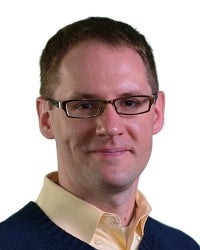Industrial processes for developing new products and solutions that rely on system integration practices require tools that accurately represent system-level behavior and support analyses that enable systematic design methods to achieve desired performance. Equation-oriented languages play an important role in this context, as their symbolic–numeric representation of the underlying differential–algebraic equations allows components to be manipulated in a physics-based manner aligned with common engineering practice, while also providing flexibility and extensibility. When used in a principled way, these languages support the design of controls for integrated systems and the development of advanced state estimation methods for constructing digital twins used in performance monitoring and solutions businesses.
In this talk, I will focus on applying these methods to building systems, which are increasingly emphasizing system integration in order to coordinate the dynamic behavior of the electrical grid, distributed energy resources, and energy consumers (e.g., HVAC systems). I will begin by describing several aspects of these systems that pose unique challenges for conventional control design and estimation methods. I will then review emerging equation-oriented modeling tools in Modelica and Julia that are well suited to addressing large-scale problems with complex nonlinear characteristics, and discuss recent results demonstrating how control design, estimation, and machine-learning approaches can yield significant performance gains. I will conclude with a brief discussion of promising directions for future research.

Christopher Laughman received the S.B. (1999) and M.Eng. (2001) degrees in Electrical Engineering and Computer Science, as well as the Ph.D. (2008) degree in Architecture, from the Massachusetts Institute of Technology. He has been with Mitsubishi Electric Research Laboratories since 2008, where he currently holds the position of Senior Principal Research Scientist and is the Senior Team Leader of the Multiphysical Systems team. His research interests include the modeling, simulation, control, and optimization of large-scale multiphysical systems, with an emphasis on multiphase thermofluid applications. He is a member of ASHRAE and is also a member of the board of the North American Modelica Users' Group.

